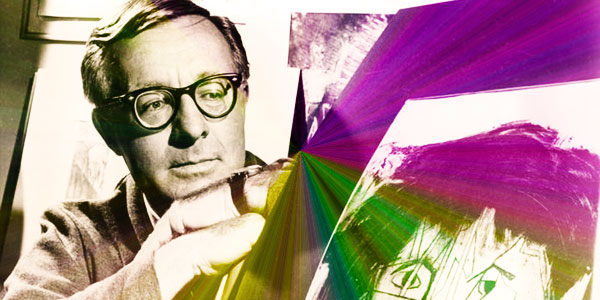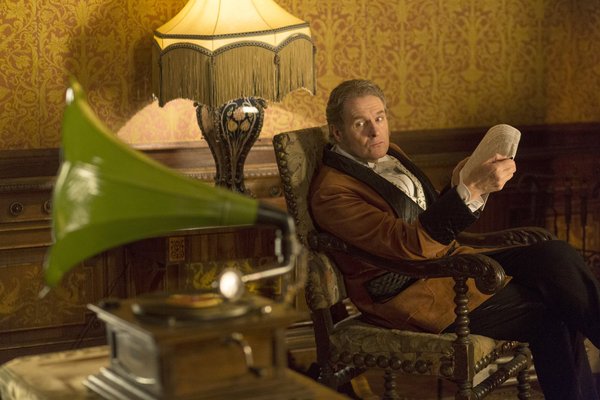Remembering Ray Bradbury

When news of the death yesterday of legendary science fiction author Ray Bradbury at 91 years of age hit the media you could almost feel the immediate and enormous reaction. Heartfelt condolences and tributes poured in, not just from his millions of sci-fi fans across the globe, but also from acclaimed fellow authors, eminent filmmakers and famous artists. Even the President of the United States weighed in with his own remarks about the man generally considered to be chiefly responsible for bringing modern science fiction into the literary mainstream.

“For many Americans, the news of Ray Bradbury’s death immediately brought to mind images from his work, imprinted in our minds, often from a young age,” President Obama said. “His gift for storytelling reshaped our culture and expanded our world. But Ray also understood that our imaginations could be used as a tool for better understanding, a vehicle for change, and an expression of our most cherished values. There is no doubt that Ray will continue to inspire many more generations with his writing, and our thoughts and prayers are with his family and friends.”
Reading all of these accolades for the celebrated writer reminded me that, like millions of others, just once I wished I could have had the chance to meet the visionary man who had influenced so much of my own childhood. So I decided to ask someone whom I knew had met Ray Bradbury once long ago about his own personal impressions. And author Stephen Gallup, who just happens to be my brother-in-law, was kind enough to send his thoughts to me.
+++++
Ray Bradbury – A Remembrance
By Stephen Gallup
The time was either the very early 1980s or possibly the late 70s, when my wife Judy and I went to the Library of Congress to hear Ray Bradbury give a talk. It might even have been the tenth anniversary of the Moon landing, because that’s the event Bradbury was thinking about.

He recalled having been on TV with a social activist on the night Neil Armstrong first stepped onto the Moon. The activist had lamented all the money spent on the space program, arguing that it should have stayed on Earth where it would do some good. Bradbury found that complaint nonsensical. He objected that the space program was not some gigantic cement mixer churning dollar bills and pouring them out on the lunar surface. Of course, 100 percent of that money was still right here on the earth and had been providing many thousands of direct jobs and, indirectly, many more jobs to people and businesses everywhere. Not to mention the other benefits resulting from tackling and overcoming that massive challenge.
He also talked about one of his stories, in which a character claimed to have returned from a golden future time when, according to that character, all of mankind’s current problems had been resolved. Believing what he told them, everyone set about making his promised better world a reality—and they succeeded. At the end, the character admitted that he’d never been to the future at all. All the world had needed to achieve success was the assurance that that was their fate.
 No doubt he tied these and other nuggets together in an enlightening way, but his image of the cement mixer is the main thing to have stayed with me through the years. Writers favor literary devices like that for the very reason that they fit into our minds the way a key fits a lock. Also, I liked the idea that affirmation of an idea could make it real.
No doubt he tied these and other nuggets together in an enlightening way, but his image of the cement mixer is the main thing to have stayed with me through the years. Writers favor literary devices like that for the very reason that they fit into our minds the way a key fits a lock. Also, I liked the idea that affirmation of an idea could make it real.
Sometimes, I felt, Bradbury overcooked his language just a bit. But that flowery prose was the reason Judy called him her favorite author, and his “Dandelion Wine” her favorite novel.
Sometimes, the ideas in his writing struck me as being too simple. In my experience, confidence that an undertaking will end well is not necessarily enough. The wish may be father to the thought, but not necessarily to reality.
Still, I always liked Ray Bradbury’s works. And the man I met that night struck me as being thoroughly comfortable, well-balanced, and approachable. Up close, he reminded me of a teddy bear, and who doesn’t like teddy bears?
Just the other day, I happened to find my copy of the program for that night’s event. It contains a poem written by Bradbury (yes, he was a poet, too), and I got his autograph across that page. Somewhere around here, I also have a very kind letter he sent me, in response to a follow-up note I’d mailed to him. I’ll have to find it. It concludes with “Hugs to Judy.” He’d gathered that she was the real fan in our household.
The departure of a figure like that can only be seen as a loss for those of us who remain.
+++++
Stephen Gallup, author of What About the Boy?, blogs at www.fatherspledge.com.




He was the master of the short story, nothing but respect for him and his talent. My friend Neil has written a lovely obit http://journal.neilgaiman.com/